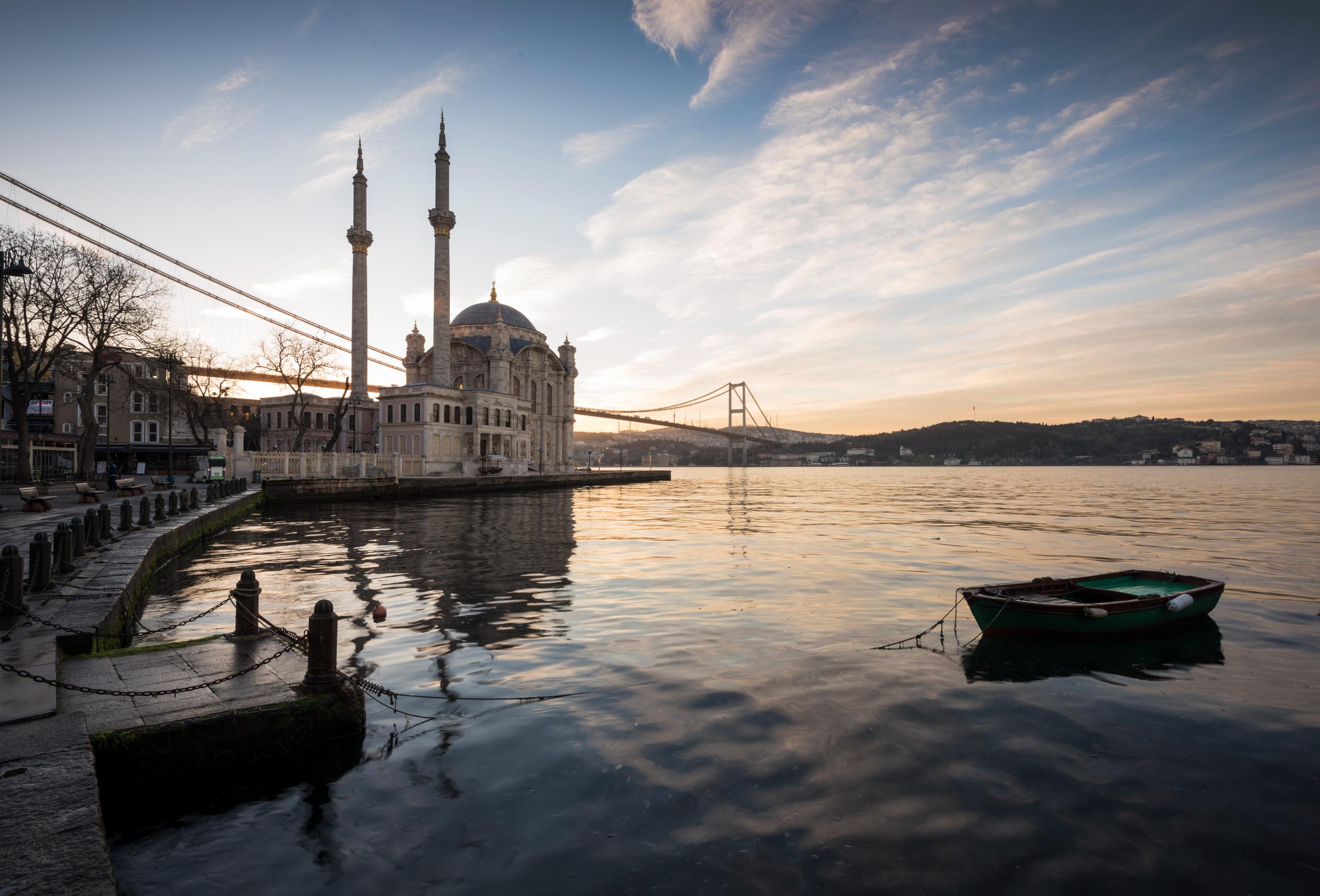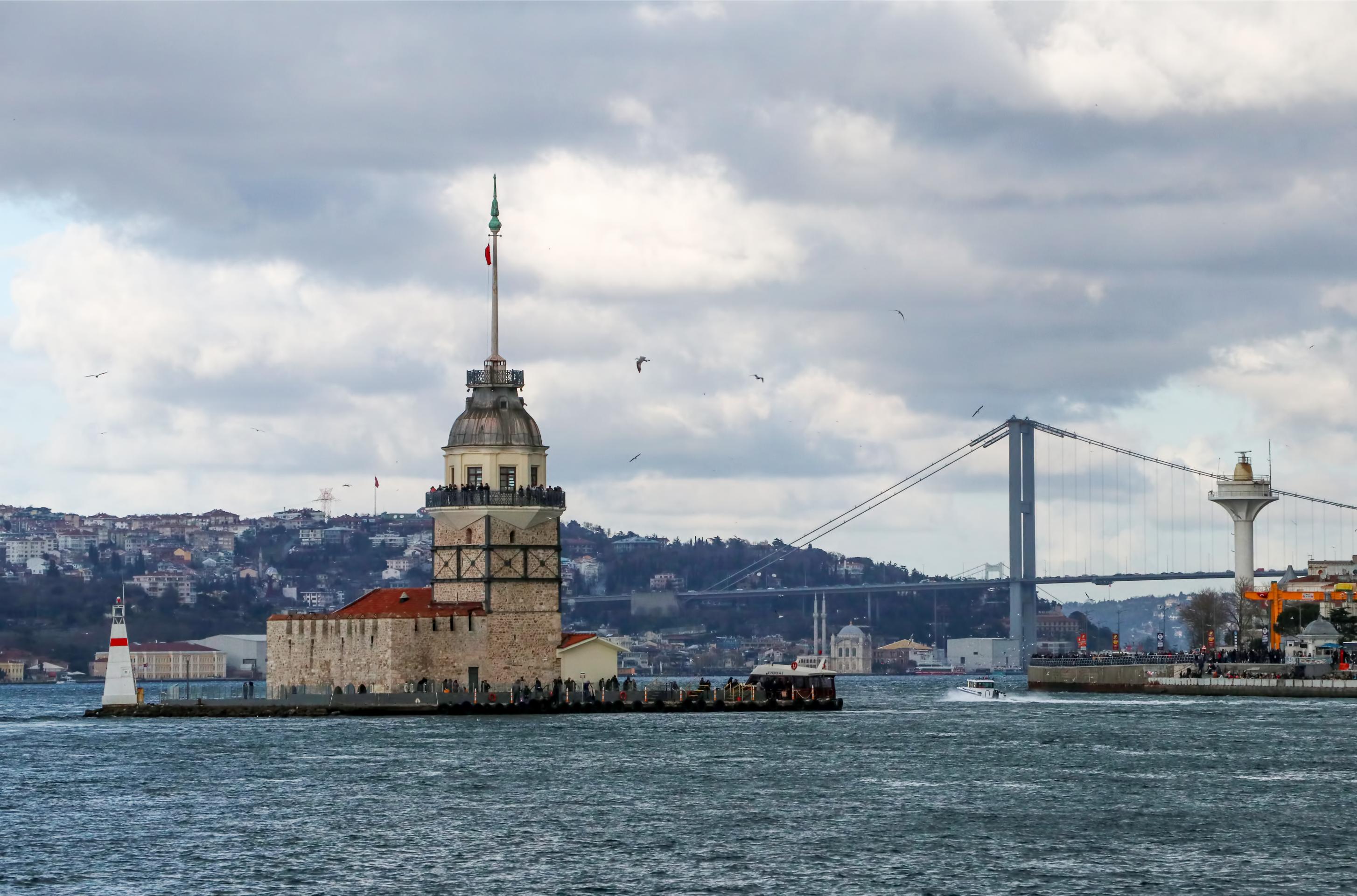
The Enchanting History of Istanbul
Where Civilizations Meet in Splendor
5 min read
Category : CultureDestination : TurkeyIstanbul, the city where continents converge and millennia of human achievement weave a tapestry of unparalleled richness, stands as perhaps the world’s most magnificently layered metropolis. For the discerning luxury traveler, the history of Istanbul unfolds not as mere academic knowledge but as a living experience, where Byzantine mosaics, Ottoman palaces, and contemporary design aesthetics create a journey across civilizations. This imperial city has witnessed the rise and fall of the world’s greatest empires while continuously reinventing itself, now offering sophisticated travelers the rare opportunity to traverse centuries within hours, all while enjoying the refined comforts of world-class luxury.
The Captivating History of Istanbul: A Symphony of Heritage and Innovation
The culture of Istanbul resonates with a depth and complexity unmatched by perhaps any city in the world. This cultural tapestry woven from Byzantine splendor, Ottoman refinement, and contemporary Turkish creativity manifests in experiences that engage all senses. From the transcendent acoustics of sacred spaces to the aromatic complexities of Turkish cuisine, from the visual feast of architectural masterpieces to the tactile pleasure of silk and ceramics crafted by artisans maintaining centuries-old traditions, Istanbul rewards the sophisticated traveler with cultural immersion that transcends ordinary tourism.
The basic history of Istanbul and The Tale of Three Empires
The history of Istanbul spans nearly three millennia, beginning with its founding as Byzantium in 657 BCE by Greek colonists from Megara. This strategic settlement overlooking the Bosphorus would later capture the attention of Roman Emperor Constantine the Great, who in 330 CE reimagined the city as Nova Roma, his “New Rome.” This second incarnation, quickly referred to as Constantinople, would serve as the eastern capital of the Roman Empire and later as the heart of the Byzantine Empire for over a thousand years.
The Byzantine era endowed the city with incomparable architectural treasures, none more magnificent than the Hagia Sophia. For luxury travelers today, experiencing this architectural marvel transcends standard tourism. Arrange private early-morning access to this sacred space, when the rising sun illuminates the gold mosaics in ethereal light, and a historian can explain the revolutionary engineering that created its seemingly weightless dome—an experience that connects you directly to the Byzantine achievement that defined an epoch.
The city’s third great transformation began in 1453, when Ottoman Sultan Mehmed II conquered Constantinople after a 53-day siege. Under Ottoman rule, the city flourished as the capital of one of history’s most sophisticated empires. For over four centuries, sultans embellished their capital with magnificent mosques, palaces, and public works that continue to define Istanbul’s skyline.
This Ottoman legacy offers today’s luxury travelers extraordinary experiences, from private after-hours tours of Topkapı Palace’s Imperial Treasury and Harem quarters to exclusive hammam rituals in historic bath complexes once frequented by sultans and viziers. These refined Ottoman pleasures remain accessible to those who seek authentic yet luxurious cultural engagement.
Why Did Constantinople Turn Into Istanbul? A Transformation of Identity
The transformation from Constantinople to Istanbul reflects the city’s evolutionary character rather than a singular historical moment. While the Ottoman conquest in 1453 marks a definitive transition in the city’s identity, the name “Istanbul” evolved gradually. The name derives from the Greek phrase "εἰς τὴν Πόλιν" (eis tin polin), meaning “to the city,” reflecting how locals referred to this preeminent urban center.
Although the Ottomans used both Constantinople and Istanbul throughout their rule, the name Istanbul became official only in 1930, following the establishment of the Turkish Republic. This formal adoption symbolized modern Turkey’s embrace of its new identity while acknowledging its Byzantine and Ottoman inheritance.
For sophisticated travelers, this layered nomenclature creates fascinating explorations through Istanbul's Turkish culture across centuries. Consider arranging private guided walks with architectural historians who can reveal the Byzantine structures beneath Ottoman additions, or engage with scholars who illuminate how cultural practices evolved through successive civilizations yet retained distinctive local character.
What is the old name of Istanbul? The City of Many Names
The history of Istanbul reveals a city known by many names throughout its remarkable journey. Originally founded as Byzantium (Βυζάντιον) by Greek colonists, it was renamed Nova Roma by Emperor Constantine, though it quickly became known as Constantinople (Κωνσταντινούπολις) in his honor. The Ottomans referred to it as Kostantiniyye in official documents, while locals increasingly used Istanbul. Other historical names include Tsarigrad (City of the Caesar) among Slavic peoples and simply “The City” (Polis) throughout the Eastern Mediterranean world, a testament to its unrivaled importance.
Luxury and History of Istanbul
Today’s luxury traveler can experience this evolution of identity through exclusive experiences that illuminate different historical periods. Imagine a private dinner in a Byzantine cistern, followed the next evening by an Ottoman palace banquet with traditional court musicians, and concluding with contemporary Turkish cuisine prepared by innovative chefs who reinterpret historical flavors for modern palates. Such curated journeys through the history of Istanbul create experiences available nowhere else on earth.
Why is Istanbul So Important? The Eternal Significance of the Bosphorus Metropolis
Istanbul’s perpetual importance stems from an extraordinary convergence of geographical advantage and cultural accomplishment. Strategically positioned at the junction of Europe and Asia, controlling the passage between the Black Sea and the Mediterranean, the city has commanded trade routes and military passages for millennia.
Beyond geography, Istanbul gained unparalleled significance as the capital of three successive world empires—Roman, Byzantine, and Ottoman—each contributing architectural masterpieces and cultural innovations that transformed the urban landscape. This imperial legacy endowed Istanbul with a concentration of artistic and architectural achievements rarely found in a single metropolis.
In contemporary times, Istanbul’s importance manifests through its role as Turkey’s cultural and economic heart, where traditional craftsmanship meets cutting-edge design and historical preservation coexists with architectural innovation. For luxury travelers, this creates extraordinary opportunities to experience both ancient grandeur and contemporary sophistication within hours of each other.
Experiencing Istanbul’s Historical Legacy Through Luxury Encounters
The discerning traveler can engage with the history of Istanbul through experiences that transcend conventional tourism. Consider these refined approaches to historical exploration:
- Arrange private access to Hagia Sophia accompanied by leading Byzantine scholars who can reveal the sophisticated theological symbolism encoded in its mosaics and architectural features, followed by exclusive entry to nearby cisterns normally closed to the public.
- Experience the Ottoman legacy through privileged access to private collections of imperial artifacts, or commission bespoke pieces from ateliers maintaining traditions established to serve the Ottoman court, perhaps custom-made jewelry inspired by Topkapı Treasury designs, created exclusively for you by master craftsmen.
- Connect with Istanbul's Turkish culture through private culinary workshops with renowned chefs who can demonstrate how Byzantine, Ottoman, and modern Turkish cooking techniques have evolved while maintaining distinctive local character, perhaps in a waterfront yalı (wooden mansion) on the Bosphorus, concluding with a sunset dinner overlooking the strait.
Contemporary Istanbul: Where Historical Legacy Meets Modern Luxury
Today’s Istanbul offers sophisticated travelers the opportunity to experience how historical legacy informs contemporary luxury. The city’s most exclusive accommodations, often housed in meticulously restored Ottoman mansions or repurposed historical buildings, combine authentic architectural character with modern amenities and service standards.
The culture of Istanbul continues to evolve through its dynamic contemporary art scene, fashion design, and culinary innovation. Arrange private studio visits with prominent Turkish artists, exclusive showings at fashion ateliers reinterpreting traditional textiles for contemporary wardrobes, or bespoke tasting menus at avant-garde restaurants where Ottoman palace recipes receive modern reinterpretations.
For the ultimate synthesis of historical perspective and modern luxury, consider a private sunset cruise on the Bosphorus aboard a traditional yacht, where a historian can identify shoreline landmarks representing various periods of the history of Istanbul while a private chef prepares a dinner showcasing the evolution of Turkish cuisine across centuries.
The Eternal City: Where Time Creates Depth Rather Than Distance
For the sophisticated traveler, Istanbul offers an unparalleled opportunity to experience how historical depth enriches contemporary experience. Unlike cities where modernity has erased historical layers, Istanbul’s history remains vibrantly present not as museum pieces but as living traditions continuously reinterpreted.
This extraordinary continuity of civilization from Byzantine mosaicists to Ottoman calligraphers to contemporary Turkish designers creates a cultural landscape of unmatched richness. The history of Istanbul thus becomes not a distant academic subject but an immediate, sensory experience where past achievements inform present pleasures, and sophisticated travelers can appreciate how cultural evolution creates authentic luxury impossible to replicate elsewhere.
Whether admiring Byzantine engineering through privileged access to monuments typically closed to visitors, experiencing Ottoman refinement through private palace tours and traditional hammam rituals, or engaging with contemporary Turkish creativity through exclusive cultural encounters, Istanbul rewards the discerning traveler with experiences that unite historical perspective with present-day indulgence, a true luxury of both mind and senses available nowhere else on earth.
Related Articles

Exclusive Activities to Do in Turkey
Unlock unique Activities to Do in Turkey. Enjoy private historical site tours, luxury gulet cruises, and exclusive culinary workshops. Elevate your experience.

Top Things to Do in Marmaris
Things to do in Marmaris range from sailing to curated cultural immersions, all set against a breathtaking coastal backdrop and Mediterranean climate.

Extraordinary Things to Do in Cappadocia
The distinctive things to do in Cappadocia blend natural wonder, historical significance, and refined experiences that create memories to be treasured for a lifetime.
